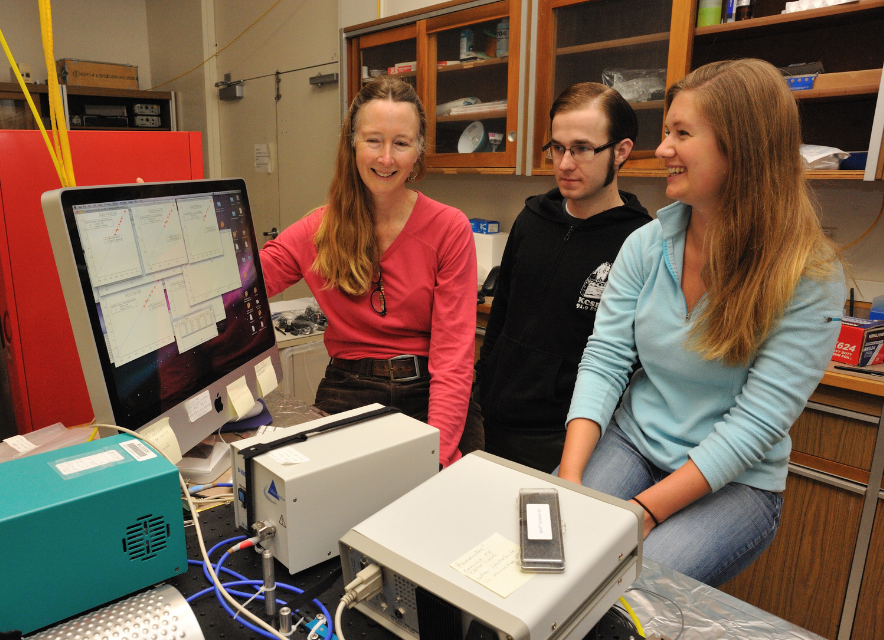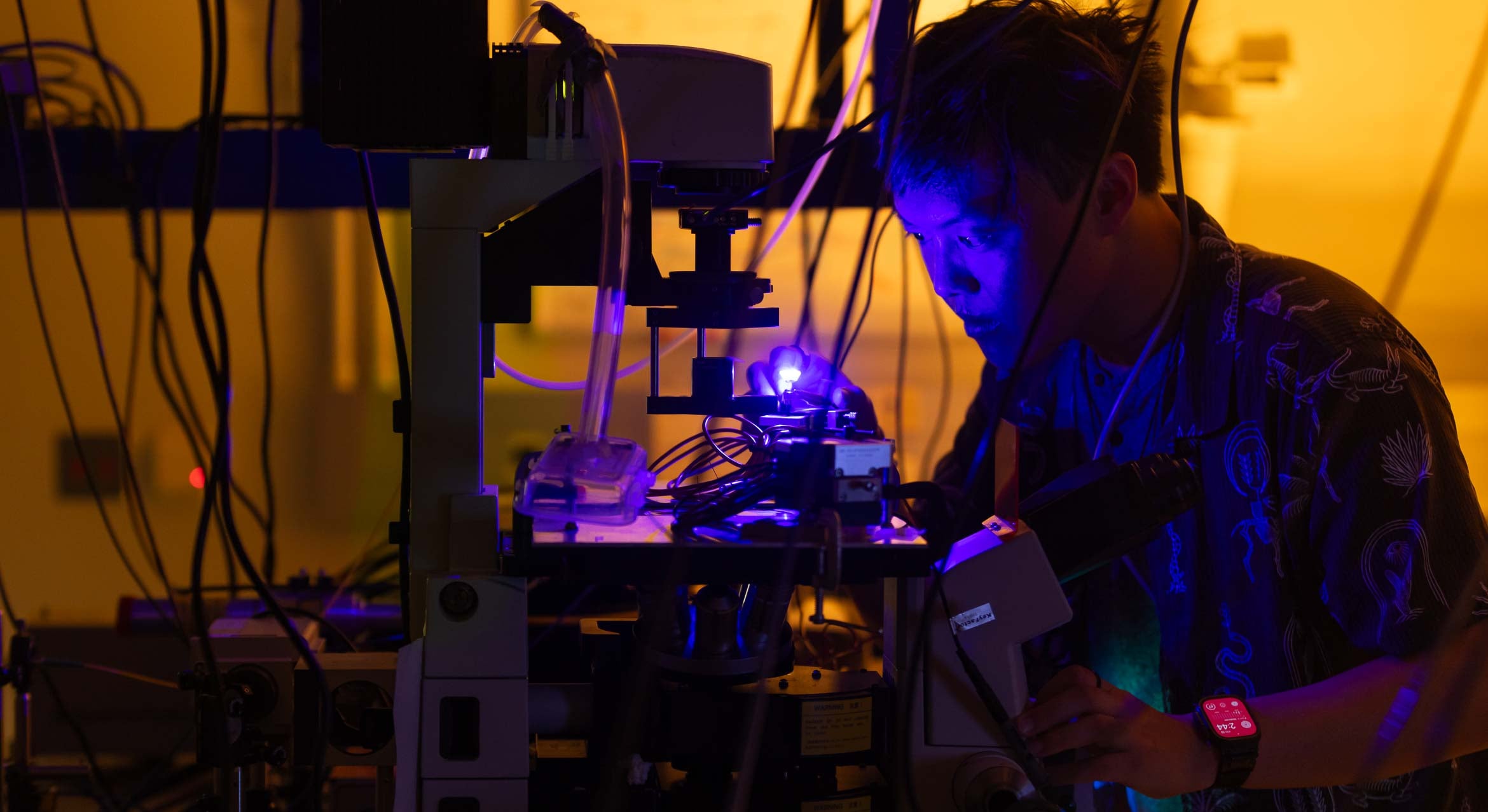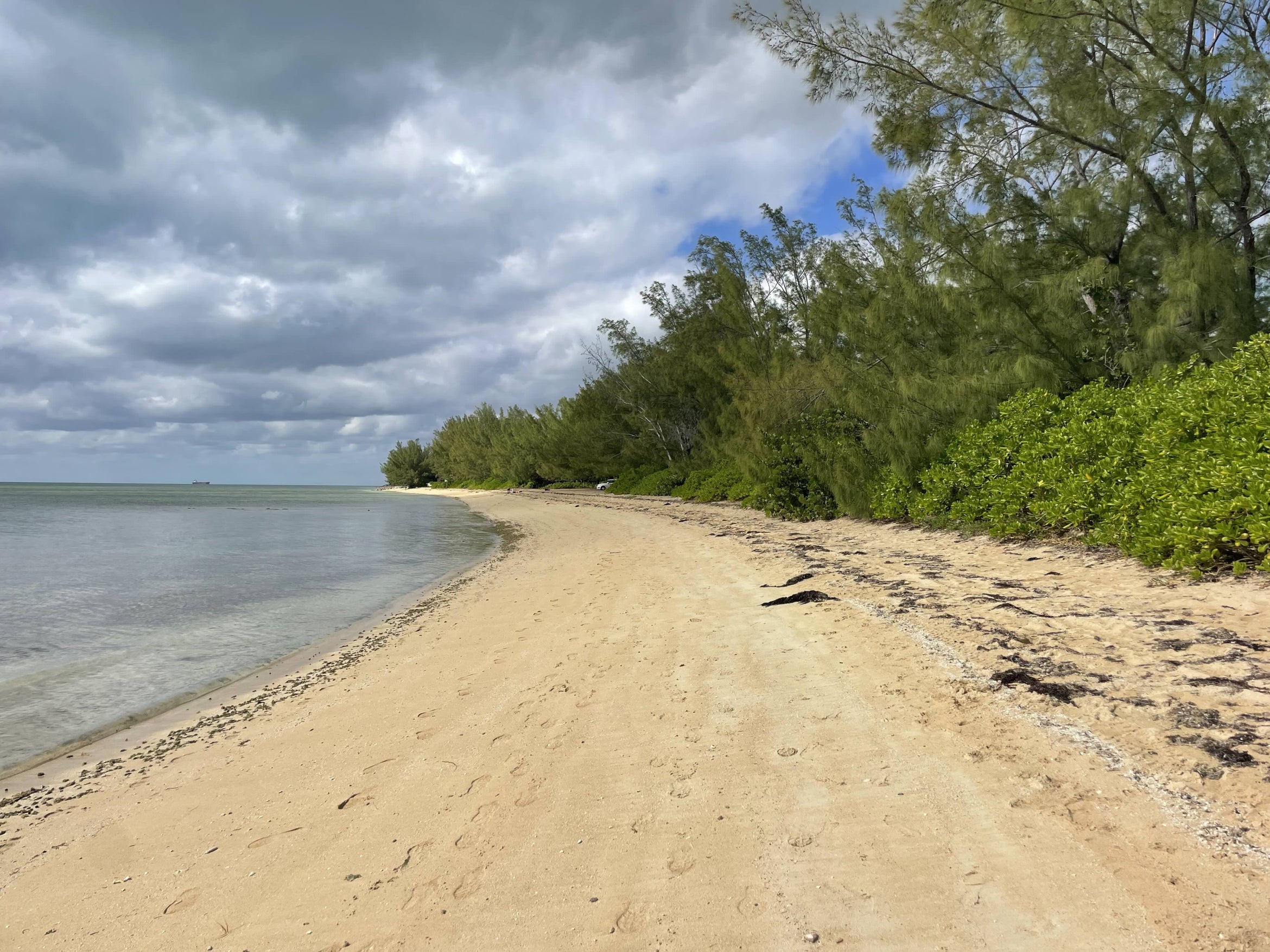
A Trailblazer
Sometimes what we really need is someone who can show us how it’s done. For 30 years and for countless students, UC Santa Barbara physics professor Elisabeth Gwinn has been that person.
And now, in recognition of her dedication Gwinn has been awarded the American Association for the Advancement of Science’s (AAAS) 2019 Lifetime Mentor Award.
The award honors “individuals who during their careers demonstrate extraordinary leadership to increase the participation of underrepresented groups in science and engineering fields and careers.”
“Beth’s commitment to ensuring that anyone — regardless of race, gender or economic status — should be able to succeed in STEM careers has transformed her department and improved the lives of countless students,” said one of Gwinn’s former mentees, Stacy Copp, now a postdoctoral fellow at Los Alamos National Laboratory. “Her excellence as a mentor is apparent in the success of her former Ph.D. students and in the many programs she established to provide financial support for female and underrepresented minority Ph.D. students and science education to underserved communities.”
Gwinn joined the UC Santa Barbara Department of Physics in 1989, becoming the university’s first female physics professor. As she achieved that milestone, she also opened the door to more female and underrepresented students who wished to pursue physics. Women have comprised roughly half of her Ph.D. students, a proportion that far exceeds the national average for women in physics. Close to 20 percent of her undergraduate researchers have been underrepresented minority students.
“I believe it’s important that young people have opportunities to explore and develop their talents and interests so they make choices that lead to happy, rewarding lives,” Gwinn said. “At UCSB that means all departments should work hard to provide a welcoming environment for all students.”
Gwinn’s influence extends outside her immediate research circle. In her efforts to make physics more accessible to those who have the talent — but not necessarily the traditional support and preparation — to enter the challenging and highly competitive discipline, Gwinn is a longtime advisor and supporter of the graduate student-led Women in Physics group on campus. She also led the Graduate Assistance in Areas of National Need program in physics, a federal financial assistance program for high-performing students “in a field designated as an area of national need.”
“Professor Gwinn was a pioneer in our department and her efforts throughout the years have had a transformative impact on fostering a more inclusive environment for physics at UCSB,” said Claudio Campagnari, professor and chair of physics. “This is a well-deserved award, and I would like to congratulate Beth on behalf of all the faculty, students and staff in our department.”
Gwinn’s dedication to training the next generation of STEM role models led to the UCSB LEAPS (Let’s Explore Applied Physical Sciences) program. Funded by the National Science Foundation’s GK-12 initiative, LEAPS awarded graduate and undergraduate fellowships to UCSB students in the physical sciences and engineering who served as scientist role models in local K-12 public schools. Gwinn directed LEAPS throughout its 12 years of NSF funding and oversaw its transformation into UCSB’s ongoing School for Scientific Thought (SST), which provides STEM graduate students and postdocs the opportunity to design and teach classes to 9th-12th graders who come to UCSB’s Center for Science and Engineering Partnerships (CSEP) for Saturday sessions.
“I’m grateful not only for the opportunities I’ve had to work with many marvelous students, but also for the UCSB staff who partnered with me,” Gwinn said. “Neither LEAPS nor SST would have been possible without the sustained contributions of Wendy Ibsen (associate director of CSEP) and Dr. Fiona Goodchild (founding director of CSEP), or the early leadership of Professor Evelyn Hu in establishing UCSB’s strong campus support for innovative STEM education and mentorship programs.”
“We are proud to recognize the work of mentors who contribute to expanding and diversifying the talent pool for STEM,” said Shirley Malcom, senior adviser to AAAS. “Especially critical are those who make this kind of decades-long commitment to guiding students from underrepresented groups through rigorous programs by supporting their work and encouraging their success. The science community is indebted to Beth Gwinn and other faculty mentors who promote such promise and potential.”
The AAAS Lifetime Mentor Award was established in 1991 and is directed toward individuals who have demonstrated scholarship, activism and community building over at least 25 years of mentoring experience. The award includes a $5,000 honorarium, a commemorative plaque and complimentary registration and travel to the AAAS Annual Meeting.
Gwinn will receive the award Feb. 17 during the 185th AAAS Annual Meeting in Washington, D.C.



